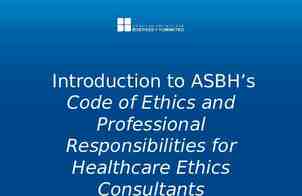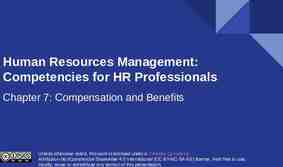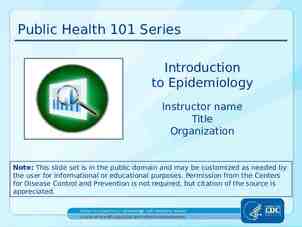World Tourism Organization (UNWTO) Competency Model Human
9 Slides116.82 KB

World Tourism Organization (UNWTO) Competency Model Human Resources Programme (November 2016)

What are competencies? The term “competency” refers to a combination of skills, attributes and behaviours that are directly related to successful performance on the job. Core competencies are the skills, attributes and behaviours which are considered important for all staff of the Organization, regardless of their function or level. Managerial competencies are the skills, attributes and behaviours which are considered essential for all staff with managerial or supervisory responsibilities.

Why are competencies important? Defining competencies is important both for the Organization and for staff. Competencies are forward-looking. They describe the skills and attributes staff and managers will need in order to build a new organizational culture and meet future challenges. They help organizations clarify expectations, define future development needs, and do more focused recruitment and development planning. Competencies provide a sound basis for consistent and objective standards by creating shared language about what is needed and expected in an Organization.

Organizational Objectives Improve Competitiveness and Quality Promote innovation and excellence in tourism policy and destination management Enhance product development and marketing Advance safe, secure and seamless travel facilitation including visa facilitation and connectivity Provide relevant and updated market information and data on trends, forecasts and the contribution of tourism to the economy and employment Promote Sustainability and Ethics in Tourism Development Promote ethical policies, behaviour and practices Improve resource management Enhance accessibility for all Advance tourism’s contribution to peace Foster the contribution of tourism to development and poverty alleviation Promote the preservation of cultural heritage and natural environments, namely in the scope of the fight against climate change Foster the full integration of tourism into local economies, ensuring a fair distribution of the sector benefits amongst host communities, their full engagement in tourism development, the respect for their social and cultural values and an overall contribution to the resilience of the sector

Core Values To promote tourism for the benefit of people and planet Support the goals and objectives of the Organization as defined in its statutes: “the promotion and development of tourism with a view to contributing to economic development, international understanding, peace, prosperity, and universal respect for, and observance of, human rights and fundamental freedoms for all without distinction as to race, sex, language or religion.” Advance the contribution to the universal 2030 Sustainable Development Agenda and the 17 Sustainable Development Goals (SDGs) Integrity Demonstrates the values of the World Tourism Organization in daily activities and behaviours Acts without consideration of personal gain Resists undue political pressure in decision-making Does not abuse power or authority Stands by decisions that are in the Organization’s interest, even if they are unpopular Takes prompt action in cases of unprofessional or unethical behaviour Professionalism Shows pride in work and in achievements Demonstrates professional competence and mastery of subject matter Is conscientious and efficient in meeting commitments, observing deadlines and achieving results Is motivated by professional rather than personal concerns Shows persistence when faced with difficult problems or challenges Remains calm in stressful situations Respect for Diversity Works effectively with people from all backgrounds Treats all people with dignity and respect Treats men and women equally Shows respect for and understanding of diverse points of view and demonstrates this understanding in daily work and decision-making Examines own biases and behaviours to avoid stereotypical responses Does not discriminate against any individual or group

Core Competencies Client Orientation Considers all those to whom services are provided to be “clients” and seeks to see things from clients’ point of view Establishes and maintains productive partnerships with clients by gaining their trust and respect Identifies clients’ needs and matches them to appropriate solutions Monitors ongoing developments inside and outside the clients’ environment to keep informed and anticipate problems Keeps clients informed of progress or setbacks in projects Meets timeline for delivery of products or services to clients Communication Speaks and writes clearly and effectively Listens to others, correctly interprets messages from others and responds appropriately Asks questions to clarify, and exhibits interest in having two-way communication Tailors language, tone, style and format to match the audience Demonstrates openness in sharing information and keeping people informed Accountability Takes ownership of all responsibilities and honours commitments Delivers outputs for which one has responsibility within prescribed time, cost and quality standards Operates in compliance with organizational regulations and rules Supports subordinates, provides oversight and takes responsibility for delegated assignments Takes personal responsibility for his/her own shortcomings and those of the work unit, where applicable Planning and Organizing Develops clear goals that are consistent with agreed strategies Identifies priority activities and assignments; adjusts priorities as required Allocates appropriate amount of time and resources for completing work Foresees risks and allows for contingencies when planning Monitors and adjusts plans and actions as necessary Uses time efficiently

Core Competencies (continued) Teamwork Works collaboratively with colleagues to achieve organizational goals Solicits input by genuinely valuing others’ ideas and expertise; is willing to learn from others Places team agenda before personal agenda Supports and acts in accordance with final group decision, even when such decisions may not entirely reflect own position Shares credit for team accomplishments and accepts joint responsibility for team shortcomings Creativity Actively seeks to improve programmes or services Offers new and different options to solve problems or meet client needs Promotes and persuades others to consider new ideas Takes calculated risks on new and unusual ideas: thinks “outside the box” Takes and interest in new ideas and new ways of doing things Is not bound by current thinking or traditional approaches Technological Awareness Keeps abreast of available technology Understands applicability and limitations of technology to the work of the office Actively seeks to apply technology to appropriate tasks Shows willingness to learn new technology Commitment to UNWTO

Managerial Competencies Vision Identifies strategic issues, opportunities and risks Clearly communicates links between the Organization’s strategy and the work unit’s goals Generates and communicates broad and compelling organizational direction, inspiring others to pursue that same direction Conveys enthusiasm about future possibilities Leadership Serves as a role model that other people want to follow Empowers others to translate vision into results Is proactive in developing strategies to accomplish objectives Establishes and maintains relationships with a broad range of people to understand needs and gain support Anticipates and resolves conflicts by pursuing mutually agreeable solutions Drives for change and improvement; does not accept the status quo Shows the courage to take unpopular stands Empowering Others Delegates responsibility, clarifies expectations, and gives staff autonomy in important areas of their work Encourages others to set challenging goals Holds others accountable for achieving results related to their area of responsibility Genuinely values all staff members’ input and expertise Shows appreciation and rewards achievement and effort Involves others when making decision that affect them

Managerial Competencies (continued) Managing Performance Delegates the appropriate responsibility, accountability and decision-making authority Makes sure that roles, responsibilities and reporting lines are clear to each staff member Accurately judges the amount of time and resources needed to accomplish a tasks and matches task to skills Monitors progress against milestones and deadlines Regularly discusses performance and provides feedback and coaching to staff Encourages risk-taking and supports creativity and initiative Actively supports the development and career aspirations of staff Appraises performance fairly Building Trust Provides an environment in which others can talk and act without fear of repercussion Manages in a deliberate and predictable way Operates with transparency; has no hidden agenda Places confidence in colleagues, staff members and clients Gives proper credit to others Follows through an agreed upon actions Treats sensitive or confidential information appropriately Judgment/Decision-Making Identifies the key issues in a complex situation, and comes to the heart of the problem quickly Gathers relevant information before making a decision Considers positive and negative impacts of decisions prior to making them Takes decisions with an eye to the impact on others and on the Organization Proposes a course of action or makes a recommendation based on all available information Checks assumptions against facts Determines that the actions proposed will satisfy the expressed and underlying needs for the decision Makes tough decisions when necessary






